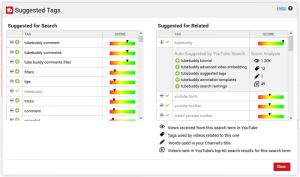My best friend has a sign in her bathroom that reads:
“Indecision may or may not be my problem.”
I find it funny every time I read it, even though she seems pretty decisive to me.
If we’re honest with ourselves, we probably all have times when we overthink decisions. Some of these choices may be about big things in our lives while others may be day-to-day things that should be simple to resolve.
The inability to make a decision because of we’re overthinking is called “analysis paralysis.” Anne Bogel wrote about the concept in her book, Don’t Overthink It.

Identifying analysis paralysis
Analysis paralysis is tough to recognize in our own lives because we don’t easily recognize our own behaviors. We’re too caught up in doing it to identify it.
Analysis paralysis, according to Bogel, looks like:
- Repeatedly putting off decisions until later,
- Postponing decisions in hopes that a better option will present itself,
- Seeking more options when we already have enough,
- Constantly reviewing the same information we’ve already gathered,
- Fearing we will make the wrong decision,
- Waiting so long to decide that we miss the opportunity to do so, and/or
- Second guessing a decision after it’s made.
Causes of analysis paralysis
My desktop wallpaper reads:
Create before you consume”
I put the quote there to remind myself not to get so caught up in gathering information that I don’t write.
I didn’t know when I created the wallpaper that I was really reminding myself not to have analysis paralysis.
Three common causes for analysis paralysis, according to Bogel, are:
- Intellectual curiosity – intellectually curious people automatically seek information before making a decision. This only becomes a problem when the information seeking results in so many options that they cannot make a decision.
- Information overload – my favorite form of analysis paralysis is when you gather too much information, spending your time and energy collecting information instead of making decisions. It’s really a nerdy form of procrastination.
- Perfectionism – the need to find the “right” answer before making a decision. It’s either perfect or it’s not going to happen.
Overcoming analysis paralysis
Perhaps you’ve identified your favorite form of analysis paralysis by now. If not, maybe read to this point again. Remember that it can be difficult to spot in yourself. Once you’ve identified your form, if you have one, the question becomes how to fix it.
Bogel offers this relatively simple advice for overcoming analysis paralysis:
- Do a reality check. There probably isn’t one perfect answer to your question. Instead, there probably are many good answers. Go with any one of those.
- Get moving. Take even one step in what you think is the right direction. Action is better than rumination.
- Eliminate perfectionism. Give yourself permission to fail with failure being anything less than what you consider perfect. Show yourself grace when this happens. Remember that done is almost always better than perfect.
- Adopt a “try and see” approach. Don’t be worried about getting things right. Instead, focus on doing something that seems acceptable and getting feedback for improvement.
The point of recognizing and overcoming analysis paralysis is to get us off of high center. We can’t do the work we’re called to do, the work that will benefit others, if we’re busy overthinking it instead of taking action. Think about this advice when you find yourself ruminating and move forward instead.
Business & Finance Articles on Business 2 Community
(74)
Report Post







